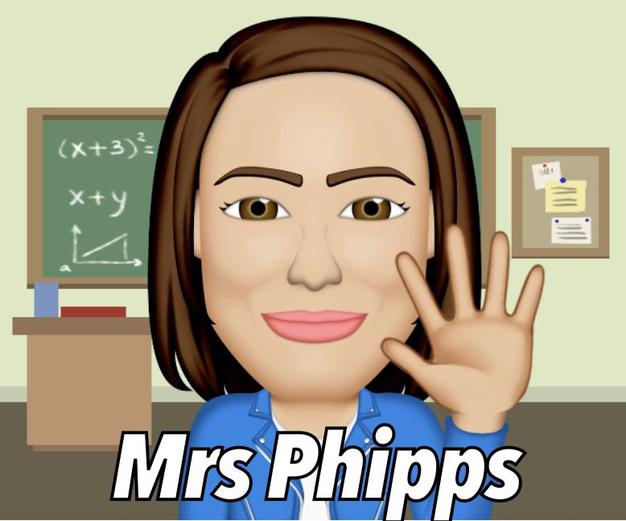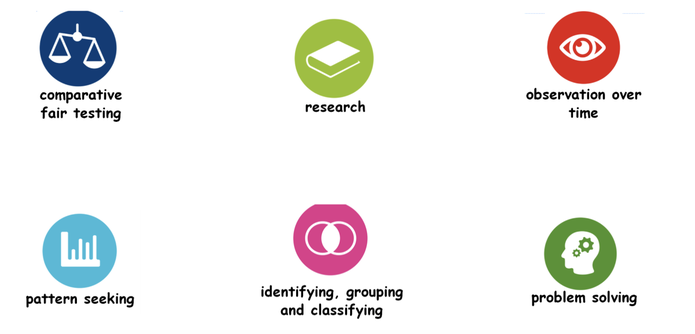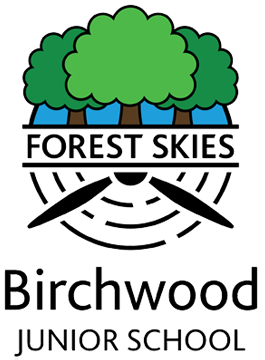Science
Mrs L Phipps

Science Subject Leader:
Mr J Westwood
Subject Definition
Science and Engineering are rapidly growing and important industries in the modern world. Even if children do not become scientists or engineers they will grow up in a world that requires scientific literacy and critical thinking skills. Science is all around us and helps children to make sense of the world.
At Birchwood Junior School we recognise the importance of Science and strive to maintain a high profile for the subject within our school. Our desire to enthuse and inspire children to develop a lifelong love of science is reflected in our curriculum, extra- curricular activities and learning environments.
A scientist observes, questions, creates hypotheses, experiments, records data, and then analyses that data. All children can be scientists by following their own natural curiosity and at Birchwood Junior School teachers help to facilitate these skills in order for children to flourish. We recognise that science is full of awe and wonder. We aim to push boundaries and nurture thinking minds, where discovery is a joy. Children are given an evidence way of understanding the world around them.
At Birchwood Junior School we understand that each child should have the opportunity for the science capital to grow along their journey through our school. This means that children should be able to develop their science related knowledge, their attitudes towards science, experiences of working and think scientifically and their knowledge of scientists both local and global.
As part of our golden threads, we understand that science should be a subject that is accessible to every pupil, regardless of background or educational needs. Therefore, all sequences of learning are designed to be adapted to pupils needs, whether requiring stretch or support. Birchwood Junior School has a pupil make up of both high Special Educational Needs and Pupil Premium. With this at the forefront of our planning and mapping, science learning is designed to give pupils the opportunity to take part in a wide range of experience and have both the resource and adult support to apply this understanding.
We have also designed science to be a subject that is embedded into the local community. All pupils are given the opportunity to engage with local scientists and tackle problems that affect our community. We believe that as scientists pupils should be considering how they can support future members of this community through their scientific understanding.
Working Scientifically
Each lesson is designed to provide structured opportunities to practise and enhance the six skills associated with working scientifically.
Our guiding principles have been developed based on age and developmentally appropriate knowledge, directly in line with government guidelines. We have also worked in consultation with parents and pupils to develop bespoke themes, taught sensitively and inclusively, with respect to the backgrounds and beliefs of pupils and parents.
We want every child to have the opportunity to work scientifically in a range of different ways. Therefore, each learning opportunity is seen through a scientific lense that will allow pupils to focus on one particular aspect of being a scientist. These lenses form the foundation of being a scientist at Birchwood Junior School, being revisited in each learning journey and with the skills progressing from Year 3 through to Year 6.
Comparative and Fair Tests
Comparative and fair test enquires enable children to explore relationships between variables. In comparative tests children compare one event with another, e.g, does the red car go faster than the green car? In more complex comparative tests children compare several different materials, events or artefacts, controlling conditions and variables to ensure validity.
Children carry out a fair test to identify a causal relationship between two variables. They identify a variable to change that can be quantified and test the effect of changing it on another variable, keeping all other variables the same. For example, how does changing the height of a ramp affect how quickly a toy car rolls down it, where the type of car and other relevant variables are kept the same.
Research
Children have the opportunity to answer enquiries using secondary sources. When researching using secondary sources, children can develop their ability to compare and evaluate information from different sources; distinguish fact from opinion and recognise conflicting evidence or bias; recognise questions that don’t have definitive answers. Researching something that interests children enables them to answer their own questions and stimulates them to ask and answer more. This type of enquiry enables children to practice a range of different cross-curricula skills.
Observing Over Time
Observing over time helps children to identify and measure events and changes in living things, materials and physical processes and events. These observations may take place over time spans from minutes or hours, for examples puddles evaporating or watching a shadow move, to several weeks or months, for example growing plants or hatching eggs. Observing over time provides opportunities for children to be actively involved in making decisions about what and how to observe and measure and the best ways to record the changes that occur.
Pattern Seeking
In pattern seeking enquires children observe, measure and record events and systems. They also collect and interpret data from secondary sources. They make observations and conduct surveys where the variables can’t easily be controlled for practical or ethical reasons. In these activities, children try to answer questions by identifying patterns in the observations and measurements that they record. Sometimes they will find a direct relationship between variables. For example, they might observe that the thicker strings on a guitar produces deeper notes.
Identifying, Grouping and Classifying
Identifying and classifying are key scientific activities that help us make sense of how the world is organised. Children begin to use this enquiry by observing closely, learning the names of different things, noticing characteristics, similarities and differences and learning how characteristics can be used to group things together. Children develop these skills by sorting many different kinds of materials, objects and living things and recognising that these can be classified using different criteria.
Problem Solving
To help children develop independence in scientific enquiry, pupils should be encouraged to use their own initiative in problem solving. You might challenge your pupils directly with a question or show a particular phenomena and ask them to explain it. Often, posing problems with a real life context will stimulate children's interest and thinking. Children are encouraged to use their previous knowledge to produce independent products that require pupils to solve problems.
Working Scientifically Lenses

